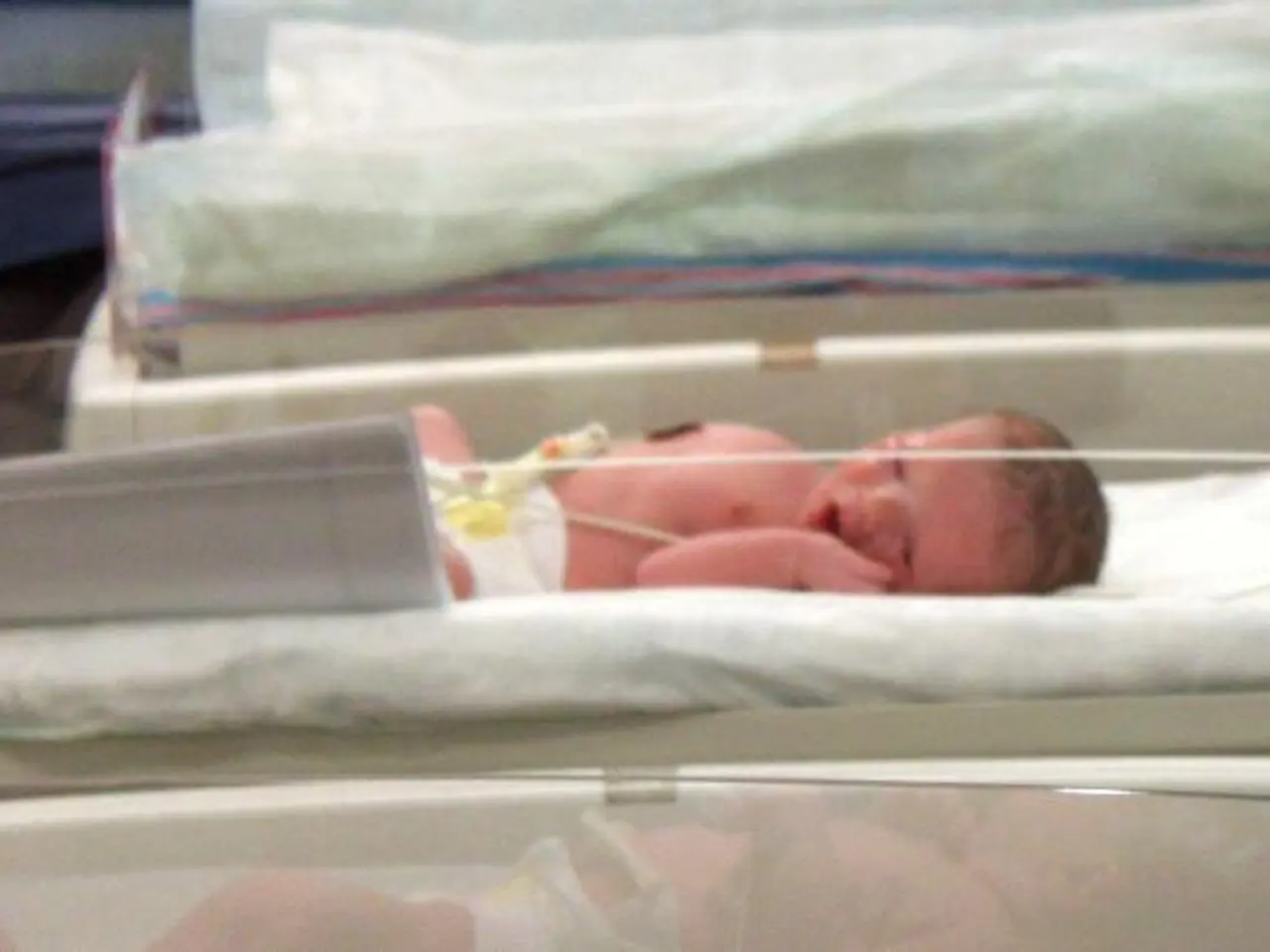Scientists in Britain successfully delivered healthy newborns utilizing DNA from three individuals to prevent genetic illnesses.
Mitochondrial donation therapy, a revolutionary technique that combines DNA from three people, has resulted in eight healthy babies being born in the United Kingdom. This pioneering method allows women with disease-causing mutations in their mitochondrial DNA to give birth to children free from genetic diseases [1][3][5].
The process involves several key steps. During in vitro fertilization (IVF), the nucleus containing the majority of a person’s genetic material is removed from the mother’s egg with defective mitochondria. This nucleus is then inserted into a donor egg that has healthy mitochondria but has had its own nucleus removed. The reconstructed egg is fertilized with the father’s sperm, resulting in an embryo with nuclear DNA from both parents and mitochondrial DNA from the donor [1][3][5].
The United Kingdom is currently the global leader in mitochondrial donation therapy. The country changed its law in 2015 to permit this treatment, and since 2017, it has been performed clinically at Newcastle upon Tyne Hospitals NHS Foundation Trust [1][5]. As of 2025, eight healthy babies have been born using this method in the UK [1][3][5].
Despite the UK's progressive approach, most countries remain cautious due to ethical, legal, and safety concerns. As of now, there is no public information about other countries having formally legalized or clinically implemented mitochondrial donation for avoiding rare diseases in children [1][5].
The Lily Foundation, a charity supporting research into mitochondrial diseases, is actively involved in the latest work done at Newcastle University. This research marks an important milestone, expanding the range of reproductive options for couples [1][5].
However, the future of mitochondrial donation therapy in other countries, such as the United States, remains uncertain. Critics have raised concerns about the long-term impact of these novel techniques on future generations, and the technique requires a change in the law to approve it [1][5].
In the UK, as of this month, 35 couples have been authorized by the country’s fertility regulator to have a baby born through donated mitochondria [1][5]. For families like Liz Curtis, who founded the Lily Foundation after her daughter died of a mitochondrial disease in 2006 at the age of eight months, this latest work brings a glimmer of hope [1][5].
It is important to note that the donor's genetic material makes up less than 1% of the baby born after this technique, and it does not contribute to the traits of the resulting child [1][5]. One of the eight babies born had slightly higher than expected levels of abnormal mitochondria, but it is not considered high enough to cause disease [1][5].
In countries where the technique is allowed, advocates say it could provide a promising alternative for some families. However, in countries like the US, where the technique is not yet approved, the diagnosis of rare diseases like Lily's disease still turns the world of families upside down, with a lack of information and support [1][5].
References: [1] Human Fertilisation and Embryology Authority. (2021). Mitochondrial donation. Retrieved from https://www.hfea.gov.uk/information-for-the-public/treatments/mitochondrial-donation/ [3] Newcastle University. (2021). Mitochondrial donation. Retrieved from https://www.ncl.ac.uk/about/university/governance/committees/research-ethics-committee/mitochondrial-donation/ [5] The Lily Foundation. (2021). About mitochondrial donation. Retrieved from https://www.thelilyfoundation.org/mitochondrial-donation/
- Mitochondrial donation therapy, a field of science advancement, could potentially offer solutions to couples suffering from certain medical-conditions, particularly chronic diseases like Lily's disease.
- In conversations about health and wellness, fitness and exercise, mental health, parenting, nutrition, and other aspects of holistic well-being, the topic of mitochondrial donation therapy arises as a promising method to combat genetic disorders.
- The exploration of health-related topics, such as the causes and treatments of cancer, should acknowledge the recent strides in medical-conditions like mitochondrial diseases, thanks to pioneering techniques like mitochondrial donation therapy.
- As more research is conducted on CBD and its potential benefits, it's essential to consider its role in overall health and wellness, including its possible effects on chronic diseases alleviated through technologies like mitochondrial donation therapy.
- Engaging in discussions about cellular biology and genetics, one cannot overlook the significance of mitochondrial donation therapy and its potential impact on the future of treating and preventing various chronic diseases.







